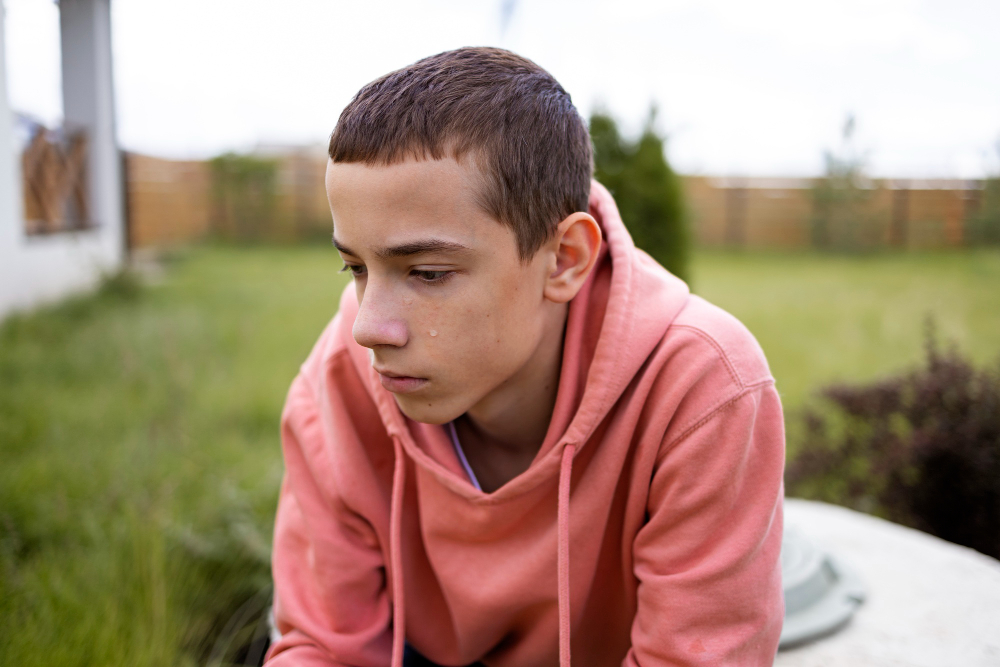Nobody tells you that you can pour every last scrap of yourself into advocacy and still feel your bond with your child begin to strain.
There is a familiar story passed among parents—one in which you step in, do a little advocacy, and watch as the pieces fall into place. The children grow, the challenges soften, and all turns out well. It is a soothing story, but not a real one, in my experience.
Maybe it is because we are too strange for the system to claim easily—Autism, ADHD, gifted—and because the system rewards a posture of helplessness as the marker of a life worth grieving for disabled people. When you do not appear consistently disabled, it demands that you perform perfect wellness, erasing your needs entirely; and in holding you between these two impossible performances, it grinds you down, slowly instilling debility.
This is how ableism and patriarchy intertwine: by prescribing impossible embodiments and judging women’s worth through their capacity for sacrifice, the system manufactures both our exhaustion and our dependency, then blames us for the damage it has caused. These are not isolated acts of cruelty but part of a collective pattern—women, especially mothers of disabled children, held in a bind where their value is measured by their willingness to disappear into care, while their pain is either disbelieved or romanticised.
-
Debility versus disability: what the system cannot acknowledge
My son Robin took to bed two weeks before March break. He had been soldiering on through the aftermath of a school transfer the district assured us would help him, though his body told me otherwise from the first day he arrived. I’ve…
The shape you bend into to survive the meetings
I have worn the mask of diplomacy until my jaw ached, regulating my voice and posture to ease the discomfort of professionals who decide the shape of my child’s daily life. I have done this with the hope that such careful crafting might shield him from the sharper edges of the system. From my efforts, I return home too drained for the rituals of tenderness that once felt natural, too brittle to take another emotional blow without splintering.
One afternoon, I pull the car to the curb and step out, because I can feel my emotions pressing so hard against my skin that I might explode and scorch everyone inside. At home, the dishes have multiplied and the garbage waits by the door. My child asks why I haven’t taken it out, and before I can catch myself, I snap—You do it! Why do I have to do everything alone? The words are too needy, exposing my ache of abandonment. My need fills the room like smoke, and he scurries away, slamming his bedroom door behind him.
I berate myself for having shown my need rather than meeting his with patience. I have learned that I must always be patient, that my needs must remain invisible, tucked away where they cannot disturb him. The school system has stolen the right to ask for help with the garbage, the ability to ask him to put his shoes in the closet, to tidy his room. I am his mother and his maid now.
Our home should be the place where we can both drop our armour, but because the school harmed him and I was complicit, home has become a repair shop for his nervous system, and I am cast in the role of regulator, soother, absorber—with no room left for my own authenticity.
This fracture is an institutional advantage
When the mother-child relationship weakens, the mother’s capacity to insist on a safe, supported return to school diminishes, and the child’s absence becomes easier to frame as withdrawal, non-compliance, or “family choice.” That framing conveniently removes the onus on the school to fund additional support, adapt environments, or confront systemic failures. In this way, the emotional devastation is quietly converted into a budgetary advantage, and the slow grinding down of both child and caregiver functions as an unspoken cost-containment strategy, masked by the language of inevitability or personal circumstance.
In this way, the shame, humiliation, and abandonment I carry are not incidental; they are the engineered residue of policy, culture, and funding priorities that treat both me and my child as variables to be managed, rather than lives to be cherished.
Just a Parent
This is the seam where private grief meets institutional opportunism—the place where my exhaustion feels like a personal failing, yet the benefit flows upward into the school’s balance sheet.
-
Balancing budgets by denying disabled kids support
In British Columbia, we are told that the education system is improving. Budgets are rising. Inclusion is a stated priority. And yet, for families whose children require consistent, sustained support—especially those who are disabled or living with complex trauma—the lived experience is defined…
The theft of time and the compounding debt of care
When the school system withholds support, the harm extends beyond the classroom. It creates a debt paid in the evenings, the weekends, the supposed days of rest. My child’s needs swell in the wake of institutional neglect, and the work of repair lands entirely in my hands. I give more, and in the giving, I begin to fray. The less they offer, the more I must; the more I offer, the more they find fault in my edges—too sharp in tone, too exhausting in my emails, too visibly unmoored.
This is bandwidth taxation: the slow theft of the capacity of mothers to mother, driven by the mounting demands of parenting a child being broken by public education and the never-ending second job of advocacy. It is also a gendered theft—the extraction of care labour from women under the guise of maternal duty, enforced by systems that see our love as an endless resource to be mined. Across communities, this pattern repeats: mothers of disabled children ageing faster, carrying preventable health crises, and being treated as expendable once their utility is drained.
The double wound of visibility and blame
My child sees me fighting for him, and he sees me as the one who sends him back each morning to the place where harm waits. As the adult, I carry the responsibility for repair, listening to his anger, resisting the instinct to cling when I long for closeness, reminding myself that his comfort must outweigh my own. The endless giving, without space to replenish, leaves an emptiness that cannot be filled by duty alone. Life begins to feel less like living and more like a campaign. I feel like a soldier, while still expected to appear as the soft mother, sweet and diplomatic.
Space as medicine
He has been pushed beyond reason by an institution intent on erasing his difference. His anger is the living proof of the boundaries I taught him to keep—to question everything, to think deeply, to honour his own nervous system and capacity.
I want him to have space enough to heal without the burden of my needs. He is a teenager now, so there is an intensified need for autonomy, on top of the innate needs prescribed by this pathological demand avoidance. It is a double imperative.
My own healing happens in parallel, guided by a counsellor, carried by people outside the orbit of his pain, so I never demand anything from him. I never allow myself to need anything from him. I am always giving, a unidirectional flow of my lifeblood.
Still, sometimes I wake with a start at 3AM, as if checking whether he is breathing, the way I did after he came home from the NICU, and I ache to hold him. He does not hug me anymore, and this absence cuts deeply. The shame, humiliation, and abandonment feel like a hot blanket on a warm night. I fold my arms around myself in the dark, trying to comfort myself, like I am my own baby. Every fibre of me longs to sneak into his room while he sleeps and hug him gently, yet I let him rest, trusting that space is the medicine that might allow us both to heal.
I have failed in everything, yet never for lack of trying.
This was never a personal failing
Intellectually, I have learned to read the erosion of our closeness as a symptom of institutional violence, rather than as evidence of my inadequacy. Trust cannot be sent to the site of injury again and again without tearing. Repair will grow only in the slow soil of safety, honesty, and presence—and in a society that chooses to fund care, honour caregivers, and dismantle the structures that trade our closeness for compliance.









